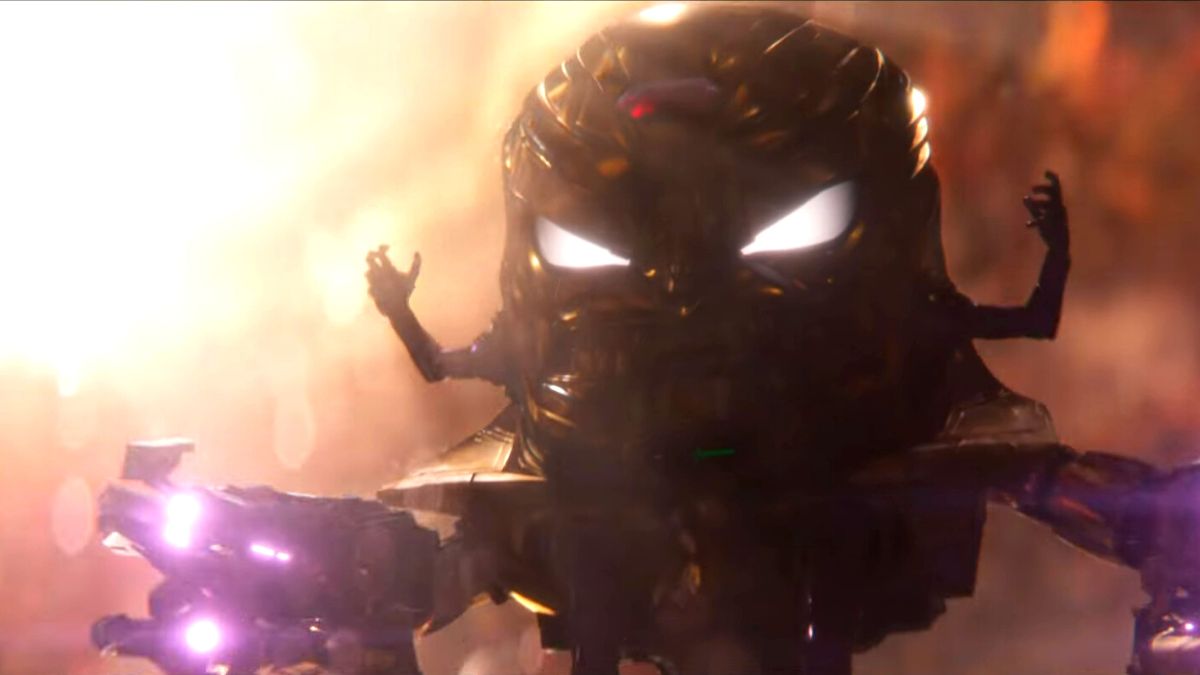In a year of high-profile Marvel flops, Ant-Man and the Wasp: Quantumania was particularly hit hard thanks to a confusing plot and some seriously grim allegations against its lead villain, Jonathan Majors. While there was plenty to dislike about the film, including the sub-par writing in parts, the reintroduction of Darren Cross/M.O.D.O.K. was something that many fans actually enjoyed despite some finding it a little controversial. And, with a few months of perspective, plenty of Marvel heads are beginning to think the film could have been salvaged had they treated him with the dastardly respect he deserved, instead of trying to crowbar a redemption arc onto his story.
In Quantumania, M.O.D.O.K. was reintroduced after audiences thought he was killed (while under the name Darren Cross) in the very first Ant-Man film in this iteration of the MCU. He appeared as the leader of Kang’s forces in the Quantum Realm, although he was eventually persuaded by Cassie to switch sides. In the end, this led to him sacrificing himself to rid the universe of Kang (or, at least a few versions of Kang), which is a pretty big and quick turnaround for someone the franchise (and Marvel history) had built up to be a complete and selfish villain.
M.O.D.O.K. has been an underground favorite of many Marvel superfans, having first appeared in the comics in 1967. At that time, he was a scientist named George Tarleton who accidentally turned himself into a giant floating head with tiny limbs (it sounds ridiculous, but his powers made him somewhat scary despite this weird appearance). Throughout most of Marvel’s history, the character has been perceived as a mechanized organism who just wants to kill, so this turn into an unselfish hero who sacrifices himself is a bit of a weird one. Then again, the MCU hasn’t always stayed true to the comics.
The writers have been defending the character’s inclusion since the film came out, with writer Jeff Loveness telling Slashfilm: “I will go to the mat for M.O.D.O.K. We’re on the internet. People got opinions. Those [jerks] are wrong.” However, it’s not so much the character’s inclusion that’s now drawing ire, but the fact he was turned into something he really isn’t. In fact, plenty of fans were excited to see a relatively unknown character get himself a big-screen moment.
This is all a bit of a shame as the process of bringing M.O.D.O.K. into the live-action portion of the MCU was a real labor of love. As per Wired, actor Corey Stoll utilized facial motion-capture technology during an initial run-through of the script so that the mask could be animated correctly, before having to then do a second shoot for the rest of the film almost a year later. During the latter shoot, he was stuck on a rig that captured his free kicking legs and his face, the former of which was used by animators to make an authentic (or as authentic as one can get) series of movements.
Stoll was also not interacting with his fellow cast members so much. More often than not, the core crew used multiple different M.O.D.O.K. models during filmings, all of which had different purposes. On one of the costumes, worn by actor Mark Weinmann instead of Stoll, VFX supervisor Jesse James Chisholm said:
“The costume was this kind of ball that went around Mark, so he had to wear two Steadicam arms to hold it up, because it was actually really heavy. He wanted to be able to navigate and move that guy around, but there was also a heft to it.”
So, a lot of effort for a floating head. Yet, the about-face by the character is still being received as lazy writing, and a bit of a deux ex machina, buoyed by corny Marvel writing (M.O.D.O.K. is seemingly convinced to switch sides because Cassie tells him not to “be a [jerk],” which doesn’t really seem like enough motivation to completely switch allegiances in such a short period, especially given the character’s history). The fact that very little other motivation was given doesn’t help matters, either.
Although the new origin story rankled some fans, others were keen on it, only finding fault with the unearned redemption arc. As was the case with WandaVision and other MCU projects, they were so close, yet so far to doing something that would have resonated with both dedicated fans and newbies alike.

